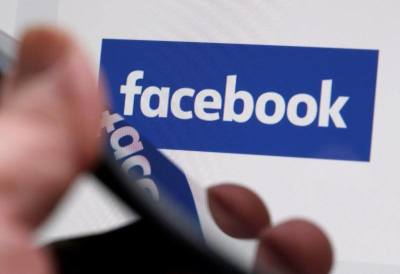Facebook’s new policy is not about 'standing up to hate'

Facebook’s campaign of anti-conservative censorship took another step forward with the announcement that the social media giant will silence speech based on the guidance of left-wing activists and will help social justice warriors lecture users who search for content designated as “hate.”
Democrats and the media are openly celebrating Facebook’s decision to ban “white nationalist” and “white separatist” content from its main platform and its subsidiary, Instagram. The company’s own announcement, titled “Standing Against Hate,” is similarly triumphant and self-congratulatory.
But I’m not convinced that this is really about “standing against hate,” as Facebook claims. Anyone genuinely concerned about free speech ought to be skeptical of the new policy, if not outright alarmed, because the people cheering it most loudly are the same ones who routinely use the term “white nationalism” as a blanket condemnation of mainstream conservative viewpoints.
During a recent congressional hearing on “Hate Crimes and the Rise of White Nationalism,” Democrat lawmakers even tried to twist the words of Candace Owens, a black conservative activist, in order to falsely portray her as a supporter of white nationalism.
By Facebook’s own account, threats, calls for violence, posts that violate the law, and any posts expressing racial hatred or “supremacy” were already banned long ago. This new policy, on the other hand, is something quite different.
This is the first time Facebook has admitted that merely holding or expressing a belief in an ideology will get your content removed. Even searching for information on “white nationalism” or “white separatism” — or any other banned phrase — will get you redirected to a page run by a self-proclaimed “former neo-Nazi leader” about how you should change your political beliefs.
Facebook is probably hoping that the social media-using public will react to the new policy with a collective shrug, assuming that “it’s only for racists” and won’t affect ordinary users.
That’s a terribly misguided interpretation of what’s happening here. No principle or limitation is articulated to define “white nationalism.” In fact, the announcement explicitly states that no action will be taken against expressions of pride or advocacy of separatism for any group — except white people.
At its heart, this is about Facebook giving left-wing activists the power to decide who is and is not allowed to speak on the most popular and widely used platform in the world for public discourse.
By Facebook’s own admission, this new policy was instituted at the behest of “members of civil society and academics who are experts in race relations” who “have confirmed that white nationalism and white separatism cannot be meaningfully separated from white supremacy and organized hate groups.”
That’s code language, of course, for “well-funded activist groups and fringey campus leftists shamed us into censoring people they don’t like.”
Social justice warriors have been demanding just such a policy for the past year, ever since the publication of an internal training document in which Facebook asserts that white nationalism “doesn’t seem to be always associated with racism (at least not explicitly).”
One man involved in the pressure campaign was American University professor Ibram X. Kendi — born Ibram Rogers. Kendi is most famous for writing a book about how America has always been full of racists, including the most radical of the 19th century abolitionists and, oddly enough, black intellectual icon W.E.B. DuBois.
Kendi is very explicit that advocating “colorblindness” is racism, and that, in his own words, “there is no such thing as a nonracist.” He is equally clear that if you are not a “feminist” and do not agree with him on a whole host of other, seemingly unrelated issues, you are a racist.
A variety of well-known left-wing organizations were involved, too, including the “poverty palace” of the increasingly discredited Southern Poverty Law Center (SPLC), whose cooperation with Facebook was revealed in a series of leaks last year. In addition to all its recent woes, including allegations of racism and sexual harassment, the SPLC so aggressively targets conservative groups that Senator Tom Cotton is now asking the IRS to investigate its tax-exempt status as a non-partisan organization.
Even beyond its politically-motivated attack on President Trump, the SPLC has a notoriously broad definition of “white nationalism,” featuring conservative social scientist Charles Murray alongside former KKK Grand Wizard David Duke in its list of “White Nationalist” extremists.
Another group leading the charge is the Van Jones-founded organization Color of Change, which demonstrated just how far the definition of “white nationalism” could be stretched in 2011, when they hounded conversative icon Pat Buchanan off the airwaves for — you guessed it — “white supremacy.”
Even the man whose website users will be directed to if they run afoul of the new policy, Christian Picciolini, used his supposed credibility as a “ex-neo-Nazi skinhead” to build himself into a minor “#resistance” celebrity. He has spent years feverishly spreading conspiracy theories about President Trump colluding with both Russians and white supremacists. He also routinely calls the President’s supporters “Nazis” and “white nationalists,” especially after the Trump administration cancelled a $400,000 taxpayer-funded grant he was due to receive for his activism.
These are the kinds of people Facebook relies on to define “white nationalism.” They can offer as many excuses as they want, but the fact remains: Facebook has made an ideological decision to ban speech — not because it’s illegal, hateful, or dangerous, but because left-wing groups want it banned.
Every freedom-loving American should find that alarming, not just those who have already been unjustly smeared as hate-mongers and bigots merely for holding conservative views. Liberal extremists want to silence and punish anyone who doesn’t share their views, and Facebook just gave them a powerful new way to do that.



























